Portrait of a Tatarstan teacher in figures: a tired woman ‘in her late 45s’
If nothing changes, in 15 years there will be no one in most schools to teach Russian, Mathematics, Physics, Chemistry, and Biology
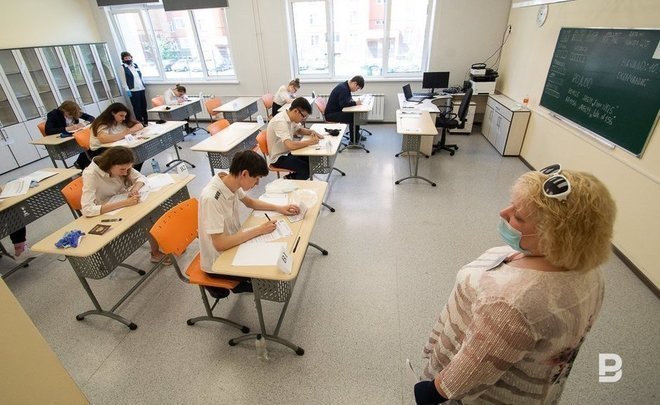
The Ministry of Education of Russia has published statistics on the provision of schools with teachers. Realnoe Vremya has analysed the published information about the country's teachers with a “layout” by region, gender and age. The conclusions look disappointing — if the situation does not change, the next generation of Tatarstan schoolchildren will have no one to teach them. Read more about the “unnatural” aging of school teachers of the republic, the absence of a young change and “gaps” in teaching disciplines, without which not only attempts to develop production in Russia and the republic, but also plans for the development of medicine and education, are doomed to failure — in our material.
Four times fewer teachers to replace the older generation
Analysing the statistics of the Ministry of Education, which contains data for the beginning of the 2022/2023 academic year, one inevitably comes to the conclusion that the portrait of a Tatarstan teacher looks noticeably sadder than the “average” portrait of a Russian teacher. This is an elderly woman who constantly overworks, since she works for more than one and a half people, and rapidly moves towards “retirement”.
Realnoe Vremya provides information about the number of subject teachers, as they say, based on the needs of the current moment — in order to “raise” the industry, as well as to prepare the necessary number of doctors and teachers, it is necessary to ensure admission to universities for specialised specialties of applicants who know Physics, Mathematics, Chemistry and Biology, and to teach these disciplines qualitatively, it is necessary to know the Russian language, which is mainly taught in most Russian universities.
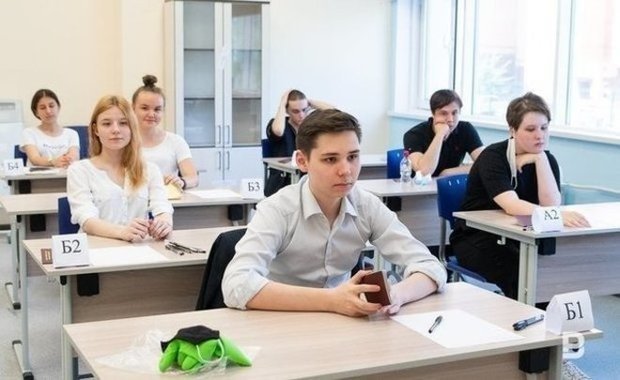
In Tatarstan, the majority of teachers teaching these “strategic” disciplines have already passed the age of 45, which means that over the next 15 years, the vast majority will cease their professional activities (less than 3% of teachers in Tatarstan schools who have passed the 65-year milestone today). And they are replaced by four times fewer teachers, and this is on average, while in rural areas — ten times less, which gives reason to talk about the coming catastrophe.
The situation with the teaching of Chemistry, Physics, Mathematics and the Russian language is particularly tragic. Moreover, the picture in the countryside is even more depressing than in the city.
Although everything is not smooth in Russia as a whole, however, the average indicators are better than in our region. For example, in the Russian Federation, there are 54,9% of teachers over the age of 45 in cities, while in the Republic of Tatarstan there are 56%, and in rural areas there are 59,2% on average in Russia, whereas in our country — 66%. Only the situation with foreign language teachers looks relatively serene, but only for now. So far, in rural and urban areas, the proportion of age-related teachers does not exceed a third of their total number. However, if there are not enough young people coming to replace them in the cities, then at least not frighteningly few, then in the countryside all hope is only for the current “middle generation”: maybe they will not flee in the next 15 years.

Everyone overworks
But the “aging” of teachers is still a problem of the future. Today's trouble is an elementary shortage of subject teachers. Realnoe Vremya compared the number of real workers and the number of actually employed rates (there are fewer of them in Russia, Tatarstan, and in the city and in the village than the number of vacant positions).
In Tatarstan, the percentage of vacancy rates is lower than the average in Russia, but there are very few teachers who work for one and a half rates. Everyone overworks! Well, either someone works one, and someone from 1,75 jobs and more. As a result, part-timers teach, it is easy to understand by a real example from the life of an ordinary Kazan school.
“I missed part of Biology lessons in the second quarter for a good reason — I participated in sports competitions," a student of the 9th grade of one of the Kazan schools told Realnoe Vremya with the permission of her mother (full name and school number are available in the editorial office). “I approached the teacher, asked her to explain incomprehensible points in the textbook. She said she didn't have time to study with me personally. I was called to the blackboard, then there was a test — I got С and F. A solid F came out in the quarter, but I love Biology, and before that I had good grades. And I really wanted to improve the assessment. I studied with a tutor, asked the teacher to give me a project, call me to the blackboard, give me the opportunity to improve — there was one answer to everything: “I have no time.”

Social elevator goes past village schools
There are more vacancy rates in Tatarstan rural schools than in the city, while the percentage of combined work is higher than the average in Russia. How to create equal starting opportunities for children from rural and urban areas in these conditions in the near future is a mystery. Moreover, it is unclear how to provide an opportunity to jump into the social elevator for a talented child from a rural family in Tatarstan, who, as a result of the “optimisation” of rural schools, is forced to spend several hours every day on the school bus and get up incredibly early to get on this bus.
And this is not the only problem of the village: in remote rural schools, there is no one not only to teach, there is sometimes no one to head educational institutions.
“Six years ago I moved to one of the regional centres of Tatarstan and submitted my resume at the local education department, “English teacher Faniya S. told Realnoe Vremya. “They didn't dare to take me to any school right away: I was a new person, they didn't know anything about me. When I had already worked for a couple of years in a modest position in the district administration, the director's position was vacant in one of the rural schools, and I was offered it, despite the lack of such experience for me, an ordinary teacher. But then I already refused: I had no experience of such work, while the village was remote, public transport did not go there, and I do not have a car. I couldn't rely on the vague promise of the local authorities to allocate a car with a driver, because today they give me a car, and tomorrow something happens — and it's not there, and the responsibility for the work of school would be on me anyway.”
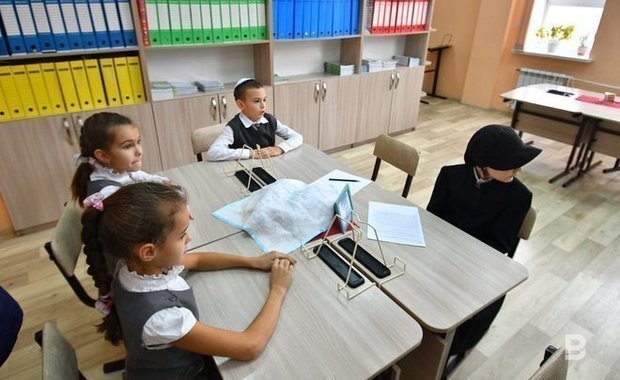
“It is necessary to return respect to the teacher”
“The main reason for the shortage of teachers is the disrespectful attitude of the state towards the teacher," says the director of Solntse school in Kazan, Pavel Shmakov. “What kind of respect for a teacher can we talk about if the law establishes a norm that allows even the headmaster to be dismissed without explanation? I'm not talking about a society in which there is also no respect for the teacher. My mother and grandmother were my teachers, I remember their stories about how they groveled before a teacher in the village — they were very respected people. And now?"
Another, no less compelling reason why teachers are fleeing schools, he says, is purely economic:
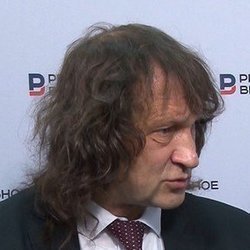
However, according to Shmakov, the “point of no return” has not yet been passed:
“It's never too late to fix the situation!”
From “Zemsky uchitel” to “teacher on wheels”
Realnoe Vremya turned to the Tatarstan Ministry of Education and Science for comment on the situation in the schools of the republic. We asked, in particular, to explain how it is planned to solve the problem of teacher shortage in the coming years and in the future, whether the “Zemsky Uchitel” programme is sufficient to solve the problem of teacher shortage in rural areas, if not, what other solutions are seen in the Ministry of Education and Science of the Republic of Tatarstan. We also asked how it is planned to solve the problem of “aging' of teachers” and how, in the opinion of the ministry, the high level of combining teacher wages affects the quality of education and the competitiveness of graduates of Tatarstan schools when entering universities, and subsequently — during the development (or non-development) of university programmes.
“In general, the republic's need for teaching staff is provided by graduates of institutions of higher and secondary vocational education," the ministry assured. “In the 2022/2023 academic year, more than 1,000 young specialists arrived, more than 400 of them to educational organisations in Kazan. Also, the ministry and educational organisations annually attract university students who study in pedagogical areas and have successfully passed the intermediate certification for at least three years of study. In the previous academic year, 438 students worked in schools and kindergartens of the republic, in the 2022/2023 academic year — 445.”
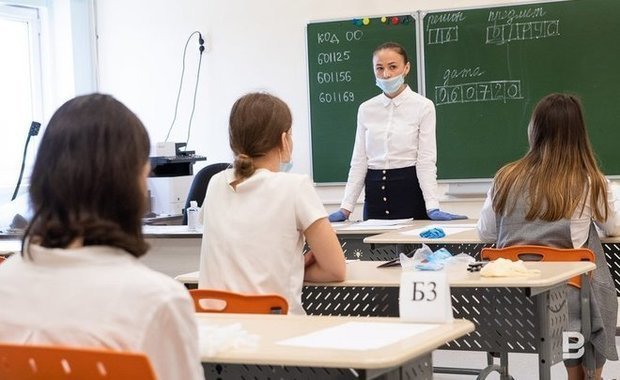
The Ministry of Education and Science also reported that available vacancies at the beginning of the academic year are closed due to the distribution of load among existing teachers, the involvement of part-time teachers and teachers with training (retraining) for teaching related academic disciplines, as well as employees of retirement age. They added that “in order to close vacancies for primary school teachers, a “double classroom management” is used, in which the teacher leads two primary classes in parallel.”
Also, the fight against personnel shortage is conducted through targeted training of future teachers:
“Since 2016, a scholarship support project has been implemented in Tatarstan to train future teachers in scarce subjects, primarily for rural areas... In the 2022/2023 academic year, 631 students of the KFU, 39 students of the Yelabuga Institute of the KFU, and 75 students of the NGPU (Naberezhnye Chelny State Pedagogical University) are project participants. Upon successful completion of the session, students receive a monthly scholarship in the amount of 15 thousand rubles, committing to work at the school for at least five years after graduation. In 2022, the second graduation of this programme took place, all 150 young teachers were employed in schools of the republic.
One of the ways to solve the problem of personnel shortage since January 2023 has been the implementation of the housing programme “Social Mortgage” under the target quota — 70 quotas have been allocated in 2023. According to the Ministry of Education and Science, 32 teachers have arrived in rural areas in three years under the Zemsky Uchitel programme.
If we add up all the figures given in the ministry's response, it turns out that at the beginning of the 2022/2023 academic year, 1,627 teachers were attracted to urban and rural schools in Tatarstan under various programmes — and at the same time, the difference between the number of teacher wages and the number of teachers (excluding part-timers) in schools of the republic amounted to 2,318. It turns out that there are not enough teachers so that they can work without overload — so that there is enough time and effort for high-quality education of children. But instead, rural teachers are forced to wander along village roads, closing gaps.
“The so-called Mobile Teacher project allows solving the problem in rural areas, when a teacher of one of the schools is given a car or on his own transport he performs part-time work in neighbouring schools of the district," the Ministry of Education and Science stated.
Already today, they try to motivate schoolchildren to get a teacher's profession:
“Since September 1, 2022, 173 classes of psychological and pedagogical orientation have been opened in 151 schools of the republic. When implementing the activities of psychological and pedagogical classes, the scientific and methodological potential of pedagogical universities and pedagogical colleges is used. For the summer period of 2023, it is planned to conduct summer educational shifts of psychological and pedagogical orientation on the basis of the Institute of Philology and Intercultural Communication of the Kazan Federal University, Naberezhnye Chelny State Pedagogical University, the Kazan, Arsky, Nizhnekamsk, Naberezhnye Chelny, Menzelinsky pedagogical colleges. It is planned that graduates of such classes should become the main applicants for targeted training.”
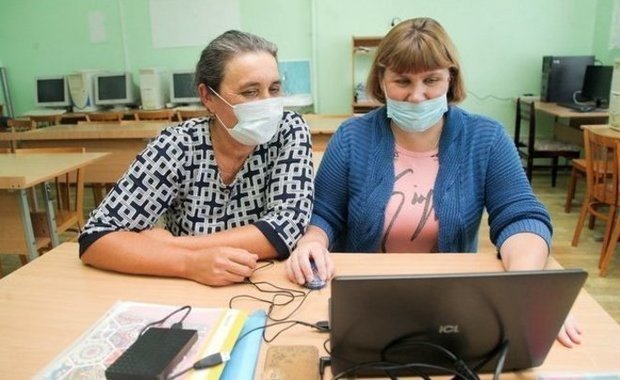
Agreeing that the percentage of part-time students in Tatarstan schools is higher than the average in Russia, the ministry insists that “nevertheless, the quality of education in the republic is much higher” — on the grounds that four schools from Tatarstan entered the top 50 best schools in Russia with a bias in technical and natural sciences, and “the results of the Unified State Exams of graduates of general education organisations for all years are higher than the average Russian”.
“The implementation of the federal project Digital Educational Environment also contributes to improving the quality of education," the ministry stressed, answering questions from Realnoe Vremya. “In 2022, 52 educational organisations participated in it. Today, the information system My School is being tested at the federal level. It is designed to ensure equal access to high-quality digital educational content and digital educational services throughout the country. Methodological support of teachers' activities is conducted at a high quality level in the Republic of Tatarstan. Since 1 March 2022, the system of remuneration of municipal methodologists has been changed. Today, on average, it is 43 thousand rubles.”
Our “formula of youth”
“The most 'mature' teachers in Tatarstan are of Physics, Chemistry, Mathematics, Biology, Russian language, and Literature, what is the reason for this and how is it planned to solve the problem of this bias?" Realnoe Vremya asked.
“The aging of the teaching staff of secondary schools is manifested in many regions," the ministry replied. “The solution to the problem of maintaining an optimal structure of teaching staff is to increase the control figures for the admission of applicants to universities for pedagogical specialties and target contracts... It must be taken into account that the retirement age in 2023 was 62 years for men, 57 years for women. To rejuvenate the teaching staff of educational organisations, the order of the Ministry of Education and Science approved a comprehensive plan of measures to implement the basic principles of securing young professionals in educational organisations of the Republic of Tatarstan.”
The Ministry of Education and Science offers to support teachers, as they say, specifically:
“It is necessary to take measures to stimulate young teachers at the state level, not at the level of individual regions, to provide housing, at least for the time of work at school, with the subsequent possibility of registration in ownership — for example, after 10 years of continuous work at school, to provide teachers with a deferral from the army.”
In 2023, announced in Russia The Year of Teacher and Mentor, just with the declared goal of restoring respect for the teaching profession, the Ministry of Education and Science has already noted the initiative to make the results of the tests of school graduates in the Russian language not mandatory, but only incomprehensibly “taken into account” — in order to accept applicants to universities for engineering specialties and directions based on the results of the Unified State Exam in Mathematics, Physics and Computer Science. If the decision is made, it may allow in the future to “correct” the situation with the shortage of Russian teachers in Russia as a whole and in Tatarstan. However, the question remains open — to what extent the new wave engineers will be able to clearly express their thoughts and justify projects.
The Russian Language Council under the President of the Russian Federation has recently come up with an initiative that is directly opposite in meaning — to introduce a mandatory exam in the Russian language for graduates of all universities. Which again indicates a flaw in this part at the school level.
